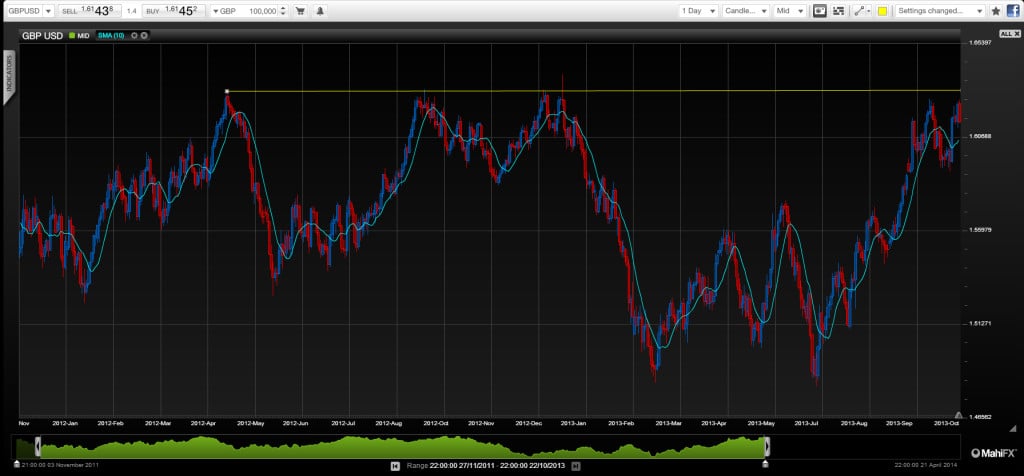Amongst a number of weaknesses such as a huge current account deficit the UK also has an inflation problem, which will eventually take its toll on GBP. For the time being at least a robust real estate market and recovering economy will be strongly supportive of Sterling.
The UK has long had an inflation prone economy. Today is no different. Consider the UK has an inflation rate of 2.7%. That’s low by historical standards, but very high compared with its trading partners. And relative is important. Because in the US it is 1.5%, the Eurozone 1.1% and Japan 0.8%. That means GBP is losing its purchasing power at a faster rate than most of its trading partners meaning that in the long run it is a negative for the UK currency.
By Justin Pugsley, Markets Analyst MahiFX. Follow MahiFX on twitter
Historically, wages have been a key driver of UK inflation. But not this time. They’re increasing by only 1% and in recent years have consistently lagged inflation. GBP weakness was a culprit, but not anymore. In 2008 it went off a cliff falling below 1.40 versus USD at one point, but for several years it has been in a relatively stable range of 1.50-1.60.
GBP/USD faces stiff resistance at 1.6300 & 1.6500
Are oligopolies and services to blame?
Identifying the key influences behind UK inflation is therefore challenging. Quantitative easing by the Bank of England may carry some blame – as a percentage of GDP it used this measure on bigger scale than the US for example, but then again UK M4 money supply is expanding at a relatively modest 2.1%.
The big culprit appears to be the services sector where inflation is running at 3.4%. In a fairly weak economy that seems strange and suggests a lack of competition allowing services companies to pass on price rises. Part of that explanation could the oligopolistic nature of much of the UK economy. Some years back an executive at a major automotive manufacturer referred to the UK as “treasure island” on account of the wider profit margins achievable there relative to other countries.
In the UK retail banking is completely dominated by four players, food retailing by four main supermarkets and domestic energy provision by six utility groups. All considered highly competitive industries, but may nonetheless find it easier to pass on price rises. Then there’s the real estate market. The highly congested, but economically dynamic south-east with its strict planning permission laws for new homes is prone to soaring house prices and rents.
But all bullish for now…
But for the time being at least none of this matters. GBP/USD could even reach 1.6500 or the lofty highs of 1.7000 before issues such as the current account deficit begin to make an impact on sentiment. Right now the ruling coalition party is busy priming the economy to help it win the general election due by May 7, 2015. Therefore measures are being taken to boost the all-important real estate market. Rising houses prices help induce a feel good factor.
Other measures such as austerity and rebalancing the economy away from domestic consumption towards exports have quietly taken a back seat. Overall this is helping boost the rate of GDP growth and it is shifting UK monetary policy towards a tighter bias. Another factor is general USD weakness due to US domestic issues – all of which is supportive for GBP.

